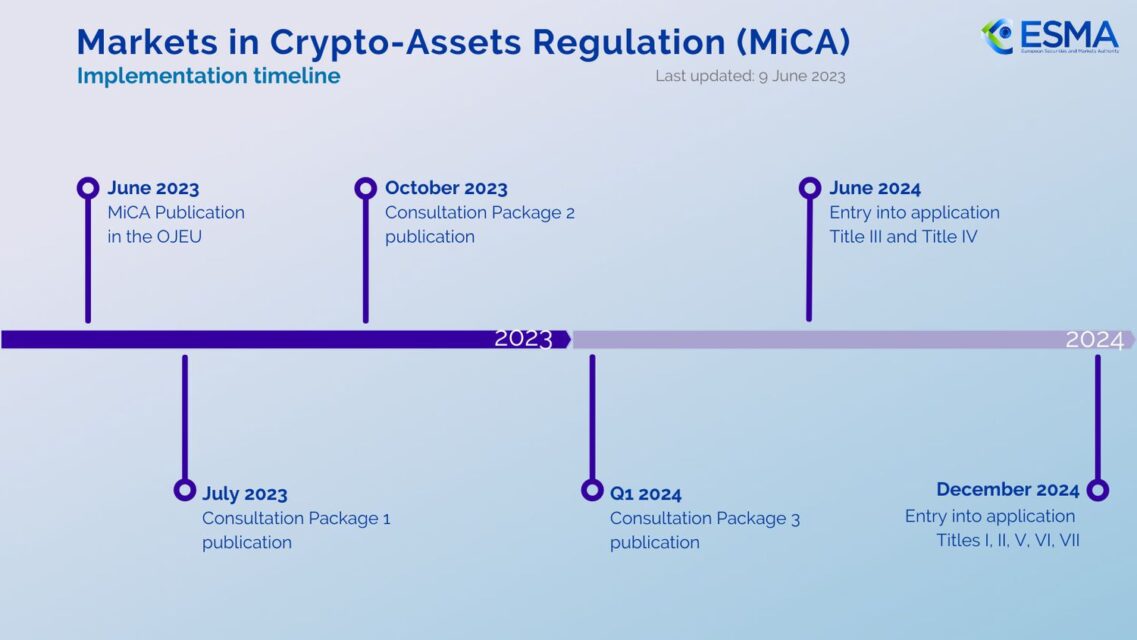The evolving landscape of crypto regulation, particularly the SEC’s recent interactions with major crypto exchanges, signals a pivotal moment for compliance and legal frameworks.
Understanding the Impact of SEC Regulations on Crypto Exchanges
In 2024, the SEC is pushing forward with a rigorous enforcement agenda aimed at crypto exchanges, emphasizing compliance with US securities laws.
This proactive stance includes significant actions against well-known platforms, signaling a pivotal period for the crypto industry’s regulatory landscape.
Further in the article, we will examine the SEC’s intensified scrutiny and its implications for crypto exchanges, investors, and the broader market.
Legal Challenges and Court Battles
Legal disputes between major cryptocurrency platforms and the SEC are defining moments in the crypto industry’s regulatory framework. These battles test the SEC’s authority and shape future governance over digital assets.
Major Cases and Legal Arguments
The SEC has initiated high-profile cases against leading crypto exchanges and platforms, asserting that many digital assets qualify as securities under US law.
Notable cases include actions against Coinbase and Binance, where the SEC argues these platforms operated without proper registrations, dealing in assets that should be classified as securities.
These cases hinge on whether specific tokens sold on these platforms are “investment contracts” and should be regulated as securities.
The legal outcomes could significantly influence how crypto assets are marketed, sold, and managed in the US.
Implications for Crypto Exchanges and Investors
The resolution of these legal challenges carries substantial implications for the operational practices of crypto exchanges.
For investors, the outcomes will likely affect the kinds of assets available on platforms and the level of regulatory protection they can expect when investing in crypto assets.
For crypto exchanges, a ruling against them could mean reevaluating their business models, requiring significant changes to ensure compliance with securities laws.
It may entail stricter AML (anti-money laundering) and KYC (know your customer) policies and fewer tradeable cryptocurrency assets.
Strategic Responses by Crypto Companies
In response to these legal pressures, crypto companies like Coinbase have articulated their stance, challenging the SEC’s claims and arguing that not all digital assets are securities.
This Exchange, for instance, has pushed back against the SEC’s broad application of securities laws, which they argue stifles innovation and harms the US position in the global crypto market.
These companies are also lobbying for more precise rules delineating which digital assets are securities and which are not, advocating for legislation supporting innovation while providing adequate consumer protections.
Future Legal and Crypto Regulation Landscape
The ongoing court cases are likely to prompt legislative changes, with potential new laws that could redefine the regulatory landscape for cryptocurrencies.
The outcomes could lead to more defined roles and responsibilities for regulatory bodies like the SEC and CFTC (Commodity Futures Trading Commission) and more precise guidelines for crypto businesses.
The legal battles and resolutions are poised to establish precedents that will influence future SEC actions and, potentially, the broader legislative environment for the crypto industry.
These developments are critical, as they will help shape the balance between regulatory oversight and innovation within the burgeoning crypto market.
The intricate dynamics of these legal battles reveal the complex interplay between regulation and innovation in the crypto industry.
The outcomes of these cases will not only affect the parties involved but could also set the stage for the future regulatory framework governing digital assets.
Compliance and Operational Adjustments
The intensifying regulatory landscape demands crypto exchanges adapt their operations to align with new compliance requirements.
Adapting to New Regulatory Requirements
Crypto exchanges are increasingly pressured to conform to evolving SEC regulations, which dictate a tighter control environment around trading digital assets considered securities.
Adjustments include enhancing transparency, improving reporting standards, and enforcing stricter due diligence on listings to avoid the inclusion of potential securities without proper oversight.
Technological Solutions for Compliance
Many crypto platforms are turning to advanced technological solutions to tackle the challenges posed by these stringent regulations.
One way to achieve this is by installing advanced compliance software that automatically monitors and reports on transactions that are considered securities.
These systems are designed to flag transactions requiring additional scrutiny or specific compliance procedures, thereby reducing the risk of regulatory breaches.
The SEC acknowledges that it must change to keep up with the markets it oversees:
The SEC must also continue to enhance its expertise in, and devote increased resources to, product markets beyond equities — including crypto assets, derivatives, and fixed income — and maintain a nimble and flexible approach to address market changes expeditiously.
Best Practices for Crypto Exchanges
Best practices in this new regulatory era involve:
- Proactive engagement with regulatory bodies, adopting robust governance frameworks, and continuous education of users about regulatory changes and their impact on trading activities.
- Establish clear communication with crypto exchanges, which are advised to channel with investors, providing regular updates on regulatory developments and how they affect the services offered.
These adjustments are crucial for crypto exchanges to remain compliant and competitive in a rigorous enforcement and oversight landscape.
In this way, the exchange’s dedication to security and transparency is reinforced while helping comply with regulatory requirements and fostering trust with users and investors.
Global Perspectives on Crypto Regulation
As the SEC ramps up its regulatory framework, comparing these developments with global regulatory trends in the crypto sector is insightful.
Comparison with Regulations in Other Countries
Countries worldwide are at various stages of implementing their cryptocurrency regulatory frameworks.
For instance, the Markets in Crypto-Assets (MiCA) framework is a recent development by the European Union that attempts to standardize legislation for cryptocurrency assets among its member states.

In the US, however, there has been more partisanship and fragmentation of regulatory certainty. (CoinDesk).
In Asia, nations like Japan and South Korea have established more stringent regulatory environments, focusing on investor protection and anti-money laundering measures while maintaining a generally supportive stance towards technological innovation in the crypto space.
International Cooperation in Crypto Regulation
There’s a growing trend towards international cooperation among regulatory bodies to tackle the global nature of the cryptocurrency market.
Forums like the G20 increasingly focus on synchronizing regulatory approaches to cryptocurrencies, aiming to combat financial crimes and ensure a stable international monetary system without stifling innovation.
Future Trends in Global Crypto Policies
The global perspective on cryptocurrency regulation is trending towards more stringent frameworks that require greater transparency and compliance from all market participants.
However, there’s also a significant focus on ensuring these regulations do not hinder the crypto industry’s growth.
Future trends may include more standardized international regulations and possibly global frameworks that facilitate easier cross-border operations of crypto businesses.
These contrasts and patterns draw attention to the various methods and intricacies involved in cryptocurrency regulation across the globe.
Such insights are critical for stakeholders in the cryptocurrency market to anticipate changes and adjust their strategies accordingly.
Expert Opinions and Predictions on Crypto Regulation
From business executives to legal specialists, we will now compile their perspectives on the evolution of cryptocurrency laws, including predictions about future modifications and their possible effects on the market.
Views from Industry Leaders

Prominent figures in the crypto industry have expressed mixed feelings about the SEC’s current regulatory approach.
For example, some executives argue that the SEC’s enforcement-first strategy might hinder innovation and drive crypto businesses offshore. They suggest a more balanced approach, encouraging the SEC to provide clear guidelines that support innovation while ensuring market integrity.
Coinbase’s CEO recently highlighted the challenges of navigating unclear and sometimes contradictory regulations, calling for a regulatory framework that is both clear and fair. This sentiment is echoed by others who fear that without regulatory clarity, the US risks falling behind other nations more openly embracing the crypto economy.
Legal Expert Insights on Cryptocurrency Regulatory Trends
Legal experts closely monitor the evolution of crypto regulations, noting that the SEC’s aggressive stance could set important precedents for other regulators globally.
For instance, experts from Norton Rose Fulbright predict that, regardless of the aggressive approach, the necessity for a balanced regulatory regime that accommodates the unique aspects of cryptocurrencies is inevitable.
A prominent attorney specializing in blockchain technology pointed out, “The regulatory landscape needs to evolve with the technology, not against it.
Regulatory agencies should work with industry leaders to craft laws that protect consumers without stifling innovation”.
Predictive Analysis of Upcoming Crypto Regulatory Changes
Predictions for future regulatory changes primarily focus on the potential for more definitive actions from legislative bodies.
Experts predict that significant legislative efforts will be made in the coming years to create more concrete frameworks for cryptocurrency.
For instance, some predict that Congress might step in to provide the necessary clarity that the SEC has been slow to offer, potentially through new legislation that explicitly addresses the classification of digital assets and their regulatory requirements.
These expert opinions and predictions shed light on the ongoing debate and the possible directions for crypto regulation.
As the industry evolves, these insights will be crucial for stakeholders to navigate the changing regulatory landscape effectively.
Managing Cryptocurrency Regulation in the Future
As we’ve explored throughout this article, the landscape of cryptocurrency regulation is undergoing significant transformations, particularly in the United States. The SEC’s intensified scrutiny and legal actions against major crypto platforms mark a critical juncture for the industry, raising questions about the future of digital asset classification and regulatory compliance.
Summary of Key Points:
- Increased Enforcement:
The SEC is stepping up its efforts to regulate the cryptocurrency space, emphasizing compliance and treating many digital assets as securities, leading to high-profile legal challenges testing the limits of the SEC’s regulatory reach. - Legal and Operational Challenges:
Crypto exchanges and other platforms face significant legal and operational hurdles. The outcomes of ongoing legal battles could dictate operational adjustments and compliance strategies for years. - Global Regulatory Environment:
Comparison with other jurisdictions reveals a varied approach to crypto regulation. While some countries offer more clarity and support for innovation, the US remains a complex, somewhat contentious arena for crypto regulation. - Expert Insights and Predictions:
Industry leaders and legal experts advocate for more precise, balanced regulations that support innovation while ensuring market integrity and investor protection. There is a consensus that legislative action is needed to clarify the regulatory framework for cryptocurrencies.
The future of crypto regulation is poised at a crossroads, with the potential for significant legislative and regulatory changes that could reshape the industry. Stakeholders must stay informed and adaptable, ready to navigate the evolving compliance landscape.




